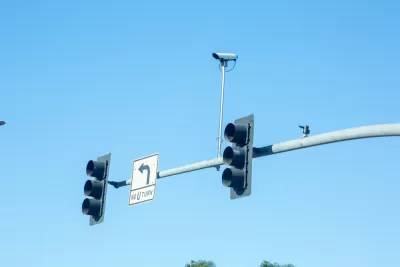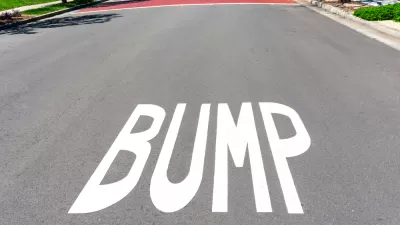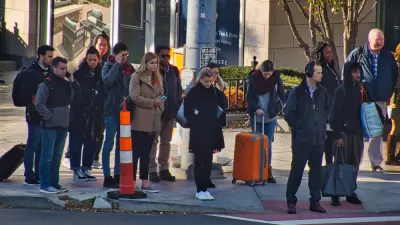The state of Texas decided to preempt local traffic safety laws by banning all red light camera programs.

"Texas Gov. Greg Abbott on Saturday signed a bill to ban red light cameras statewide," report Jeff Bell and Ashley Goudeau.
Gov. Abbott was signing House Bill 1631, approved by both houses in the Texas legislature in May. The bill forces cities to phase out existing red light cameras. "It requires cities and counties that are able to get out of their contracts with red light camera vendors to do so," according to the article. Five cities have contracts that prevent immediate action to end contracts with red light camera options.
According to Bell and Goueau, the political debate surrounding the bill squared Rep. Jonathan Stickland (R-Bedford) against Rep. Ramon Romero (D-Fort Worth). Rep. Romero tied red light cameras to traffic safety, while Rep. Strickland suggested that the cameras infringe on constitutional rights and don't actually stop drivers from running red lights.
Studies of Chicago and Houston have shown that red light cameras improve traffic safety. A study of 158 cities found that fatal crashes increased by 30 percent in cities that removed red light cameras as compared to those that continued to operate cameras.
The bill seemed unlikely to make it out committee in April, but overcame the final obstacles on the way to approval. Gov. Abbott posted a triumphant video of himself signing the new law into effect to Twitter .
I just signed the law that bans red light cameras in Texas. #txlege pic.twitter.com/AyF28hxGwO
— Greg Abbott (@GregAbbott_TX) June 1, 2019
The Associated Press also provides coverage of the bill's signing.
FULL STORY: Gov. Abbott signs bill banning red light cameras in Texas

Trump Administration Could Effectively End Housing Voucher Program
Federal officials are eyeing major cuts to the Section 8 program that helps millions of low-income households pay rent.

Planetizen Federal Action Tracker
A weekly monitor of how Trump’s orders and actions are impacting planners and planning in America.

Ken Jennings Launches Transit Web Series
The Jeopardy champ wants you to ride public transit.

Philadelphia Is Expanding its Network of Roundabouts
Roundabouts are widely shown to decrease traffic speed, reduce congestion, and improve efficiency.

Why Bike Lanes Are Good: An Explainer for the US Transportation Secretary
Sean Duffy says there’s no evidence that bike lanes have benefits. Streetsblog — and federal agencies’ own data — beg to differ.

California Invests Additional $5M in Electric School Buses
The state wants to electrify all of its school bus fleets by 2035.
Urban Design for Planners 1: Software Tools
This six-course series explores essential urban design concepts using open source software and equips planners with the tools they need to participate fully in the urban design process.
Planning for Universal Design
Learn the tools for implementing Universal Design in planning regulations.
Ada County Highway District
Clanton & Associates, Inc.
Jessamine County Fiscal Court
Institute for Housing and Urban Development Studies (IHS)
City of Grandview
Harvard GSD Executive Education
Toledo-Lucas County Plan Commissions
Salt Lake City
NYU Wagner Graduate School of Public Service





























